1. celebrate learning
2. Transformative
2.1. Emancipatory
2.2. Teacher as co-learner
2.3. Individual
2.3.1. Curriculum
2.3.1.1. Action
3. Reflective Practice Metaphorical 'Hourglass'
4. 4 Charts of Philosophical Underpinnings
5. If transformation means we are going into new territories, many kinds of frameworks, charts and maps will be necessary for the trip (Vaines, 1988, p.30).
6. What is teaching and learning?
6.1. What is TRANSFORMATIVE Practice/Pedagogy
6.1.1. Who are the stakeholders
6.1.1.1. Teacher
6.1.1.2. Students
6.2. Definition
6.3. Process
6.3.1. Learn
6.3.1.1. intended instruction engagement with content content (IRP) pre-requisite knowledge/skills
6.3.2. Create
6.3.2.1. learning as activity/inquiry critical thinking individual or collaborative
6.3.3. Share
6.3.3.1. discourse
6.3.3.2. communicating ideas
6.3.3.2.1. 3 forms of action transmission/transaction/transformative
6.4. Principles
6.4.1. Ubiquity
6.4.1.1. lifelong learning
6.4.1.2. learning anywhere/anytime
6.4.2. Personalized
6.4.2.1. learner choice based on interests
6.4.2.2. adaptive/differentiated/cumulative/21st century
6.4.2.3. inquiry
6.4.3. Collaborative
6.4.3.1. social knowledge construction
6.4.3.2. sustainability
6.4.3.3. agri-litereacy
6.4.3.4. ecological worldview
6.4.3.5. synergism/working to strenghts
6.4.3.6. connectiveness
7. Who most influenced my career?
7.1. father/Principal
7.2. teachers
7.3. colleagues
7.4. background/heritage
7.5. Smith & deZart
8. What is the potential of TRANSFORMATIVE learning experiences in the lives of students and teachers?
8.1. How do we Transform
8.1.1. relationships
8.1.1.1. transformative actor
8.1.1.2. positionality
8.1.2. building authentic relationships
8.1.2.1. teacher as facilitator
8.1.2.2. co-learner
8.1.3. RELATIONSHIP BUILDER LIST
8.1.4. IRP
8.1.5. Education as a reciprocal act, but at the end of the say teachers have the final say on how curriculum is delivered. Our flexibility is what allows the process of TRANSFORMATIVE pedagogy to occur
9. In what ways does instruction become TRANSFORMATIVE?
9.1. What are obstacles and barriers to TRANSFORMATIVE pedagogy?
9.1.1. Boys and Girls Group School based initiative
9.1.2. TIME "there is not much room for anything else when you combine teaching full time and grad school, there are however many opportunities to share the load and work together collaboratively."
9.2. How should a curriculum based on TRANSFORMATIVE pedagogy be written?
9.2.1. Reflective practice Vaines (1997) reflective practice is "grounded in the metaphor the world is our home."
9.2.2. TRANSFORMATION occurs in the most unlikely of situations *Cranton~ we can teach "as though the possibility always exists that a student will have a transformative experience" (Cranton, 2002, p.71)
9.2.3. Questions and doubts still remain my companions especially regarding our FN students
9.2.4. Role of the teacher/practitioner/co-learner is the listen, facilitate and then learn together those we seek to help
9.2.5. Know yourself and know your students. Learn together. Acknowledge students as experts and that often the best learning comes from the biggest mistakes.
9.2.6. Treat students as equals and give them the power to decide topics (deZwart, personal communication, 2013)
9.2.7. Comparison of Transmissive vs. Transformative Approaches Chart developed by M.Gale Smith
10. What are examples of TRANSFORMATIVE experiences?
10.1. AHA moment
10.1.1. disorientating dilema
10.1.1.1. ETEC
10.2. Self-study You're a White Middle Class Teacher Gayle Abbott-Mackie
10.3. Action research
10.4. How should we frame our reflections?
11. What are further ideas about TRANSFORMATIVE pedagogy/practice?
11.1. Future Considerations
11.1.1. THESA
11.1.2. practice
12. References
13. Facebook in the Home Economics Classroom
14. Where I was?
15. Where I am?
15.1. EDCP 537
15.1.1. Reflective Writing
15.1.1.1. 1.Home Economics a Historical Perspective 2. Self Study 3. Curriculum and Pedagogy <585e
15.1.2. Agriculture in the Curriculum
16. Where I am going?
17. Transformative 'Inquiry" Timeline
18. Highlighted Stopping Points
19. Critical Reflection Point
20. Critical Reflection Point
21. The Journey Starts
22. Instrumental
22.1. Technical
22.1.1. Teacher as Expert

